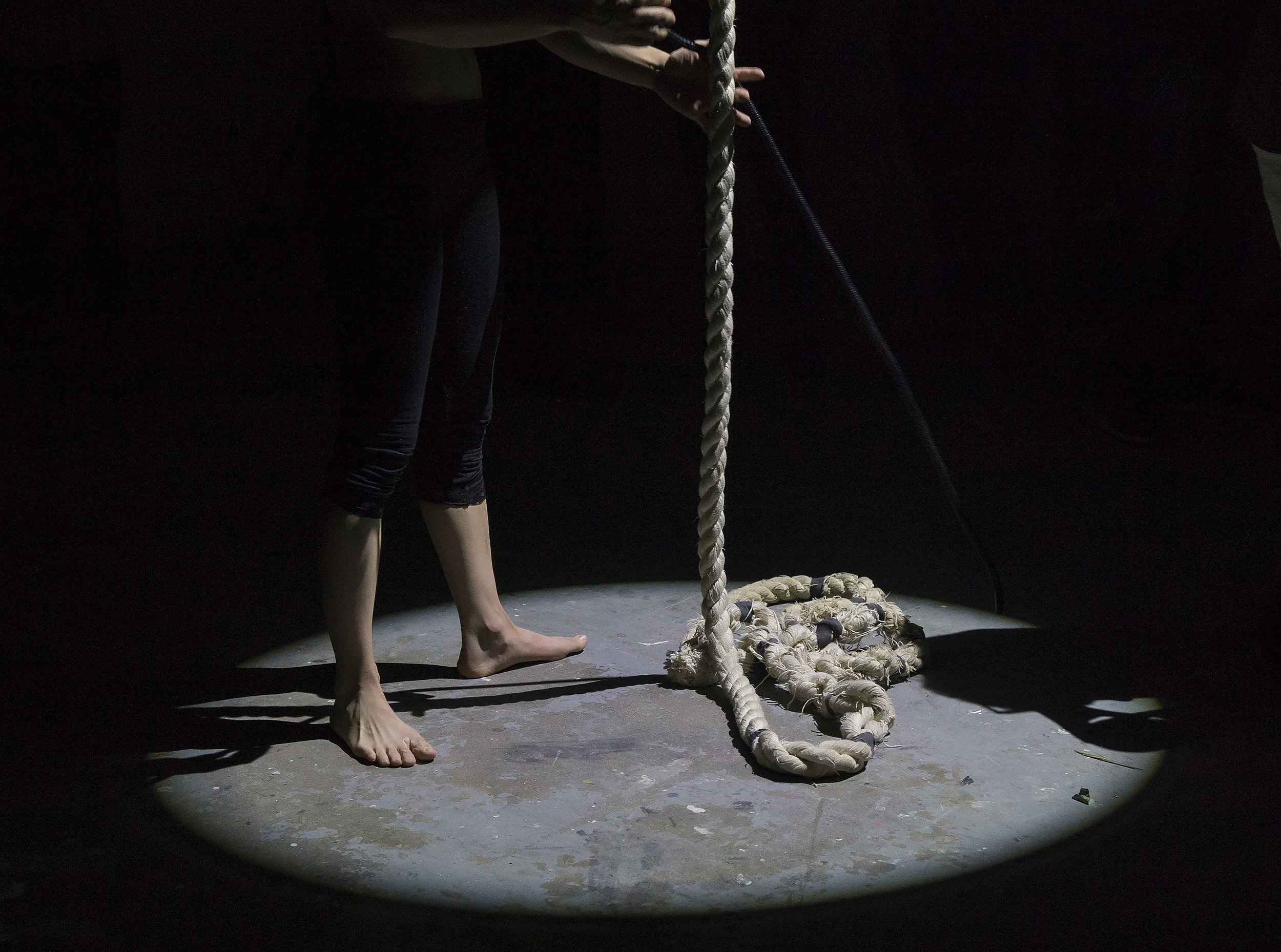5 Ways to Discover Your Strengths
 In my practice as a career coach, I talk to a lot of people who don't know what they're naturally good at. When someone isn't sure what their strengths are, they aren't able to work in alignment with them, which usually results in a really empty, drag-yourself-to-work kind of career.
Most people have a sense of what their skills are, which is great, but it's only one part of the picture - and, to be honest, not a very important one. In his book, Now, Discover Your Strengths, Marcus Buckingham breaks a strength out into three parts: talents, knowledge, and skills.
In my practice as a career coach, I talk to a lot of people who don't know what they're naturally good at. When someone isn't sure what their strengths are, they aren't able to work in alignment with them, which usually results in a really empty, drag-yourself-to-work kind of career.
Most people have a sense of what their skills are, which is great, but it's only one part of the picture - and, to be honest, not a very important one. In his book, Now, Discover Your Strengths, Marcus Buckingham breaks a strength out into three parts: talents, knowledge, and skills.
Most people on a search for a new career stay stuck in the knowledge and skills categories. They mistakenly believe that if they just get one more training, or degree, or that certification, that then they'll be able to find the career they love.
But that's not how it works.
Your knowledge and skills need to support your talents - they are a means to an end, and that end is to live out your strengths. Until you've tapped into what your innate, natural talents are, you'll pour money into trainings, graduate degrees, or certifications that may not actually serve you (note: if you've already spent all your money on any of those things, don't worry - no matter what knowledge and skills you've acquired, they can always be reconfigured to support your talents).
For the purposes of this post, when I say "strengths," I mean the talents that you were born with. I mean the way you are without trying to be.
Strengths feel good when we're using them, and they also bless those around us. People who are stuck in jobs or organizations that don't encourage them to use their strengths (and research shows that's 80% of the workforce) burn out quickly, they disengage, and they aren't able to share the gifts that are inside of them. We all lose when our strengths are unknown, stifled, or snuffed.
 Discovering and manifesting your strengths in the world is very important, and I want to help you start doing both of those things in this post.
Discovering and manifesting your strengths in the world is very important, and I want to help you start doing both of those things in this post.
Here are five ways to discover what your innate talents are so that you can share them with the world:
First, you can do work that you absolutely despise.
A lot of my clients underestimate how valuable it can be to do work that feels totally soul-sucking, which is understandable - when you're knee deep in shit, it's hard to view the experience as a "learning opportunity." But doing work that feels like the wrong fit is a great way to find out what doesn't work for you and, inversely, what would.
A job you don't enjoy is a great window into what your natural talents might be. Usually when something feels like a total slog, it's because we're trying to force the talent to come when it's just not there. We might have a lot of knowledge and skills in a particular area, but if the natural ability isn't present, it's going to feel forced.
If you're in a job that's totally draining you, take a minute to acknowledge to yourself that this is another great learning experience that life's offering you. Remember that nothing is permanent. Start paying attention to what works for you and what doesn't work, and in regards to the stuff that doesn't work: imagine its opposite and how that would feel to you instead.

Second, think back to what you enjoyed in childhood.
I would come across this idea when I was looking for my next career move and always rolled my eyes. What I did as a kid? What does that have to do with anything? I get that this may seem kind of silly. That said, I also think it can be really illuminating for people who aren't sure what their strengths are.
What kind of kid were you? What did you enjoy doing? My childhood memories consist of a lot of slumber parties, passing notes in class, and crossing clique divides in middle and high school. Sure enough, some of my strengths are empathy and relating to others. Look for themes in your childhood - I bet they could teach you something about what your raw talents are.
Third, you could try out some formal assessments.
I have a complicated relationship with career assessments. On one hand, they're great: they give some good information and can help you see what you're naturally good at. On the other hand, I think a lot of people look at assessments like they would look into a crystal ball, and it doesn't work that way. Assessments are just tools, not the final word on who you are and what you can become in your career.
 A good assessment will be high-level enough to simply point you in a certain direction, and you should always remember that no test knows more about you than you know about yourself. All of those caveats aside, some of the ones that I like and that you might want to check out are: StrengthsFinder, the Holland Code, and the Myers-Briggs. They're each very different, but they can help you paint a picture of what your natural affinities might be.
A good assessment will be high-level enough to simply point you in a certain direction, and you should always remember that no test knows more about you than you know about yourself. All of those caveats aside, some of the ones that I like and that you might want to check out are: StrengthsFinder, the Holland Code, and the Myers-Briggs. They're each very different, but they can help you paint a picture of what your natural affinities might be.
Fourth, get counsel from a spiritual guide.
I know, kind of a 180 degree turn going from StrengthsFinder to Shaman, but for many career-seekers, the spiritual component is what's missing in their search. In the West, most of us lack any sort of initiation into or guidance during our search to bring our gifts into the world, and that's really unfortunate.
Getting a different, less rational perspective on what your talents are is imperative in this process. I include spiritual guides in my life, I get help clearing energy on the regular, and I'm meeting other career coaches who see the value in referring clients to healers of all kinds. Whether it's the priest at your local parish, a Reiki practitioner, or just a spiritually attuned friend, reach out and ask for a different perspective. For some insights into what kind of healer might be a good fit for you, check out this post by Danielle LaPorte.
Finally, just find what feels good.
We don't have to overthink this. When you're using a strength, you feel good.
 So what kind of activity felt good to your soul last week? Did you lose track of time in that Excel spreadsheet? Maybe you skipped brunch because you wanted to knit that sweater for your nephew. The point of this isn't to over-analyze what your strengths are, the point is to live in concert with them.
So what kind of activity felt good to your soul last week? Did you lose track of time in that Excel spreadsheet? Maybe you skipped brunch because you wanted to knit that sweater for your nephew. The point of this isn't to over-analyze what your strengths are, the point is to live in concert with them.
If there's any part of your work today that feels good to you, try to do more of it. If there's something in your life outside of work that feels good to you, do more of that. Amp up the goodness and soon you'll start seeing opportunities for serious growth in your career.
Sometimes it feels confusing to parse out which activities feel good and which are simply things you're competent in, so I'm including a free exercise here in case you'd like to download and use it! Click this link to receive a copy of The Strengths Quadrant.
In closing...
The real issue here, at a subconscious level, isn't that you have no idea what you're good at. If you're like almost everyone else I've talked to, the issue is that you're afraid of your strengths. If you start to discover what your strengths are, that means that you might have to make some serious changes in your career, and that can feel terrifying.
If it's any consolation, fear and resistance are great guides - they usually indicate that we're on the right track. In his book Do the Work, Steven Pressfield writes, "The more important a call or action is to our soul's evolution, the more Resistance we will feel toward pursuing it." I hope you'll answer the call to discover and nurture your strengths, even if it feels overwhelming or scary.
I would be honored to support you in your journey to discover and live out your strengths. If you think that would be helpful, you can set up a free consultation on my website.
